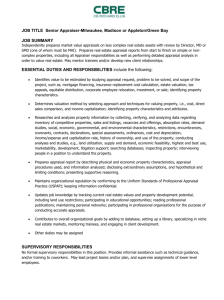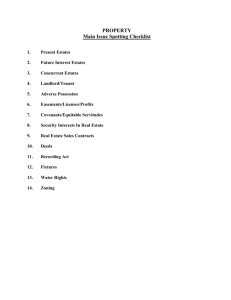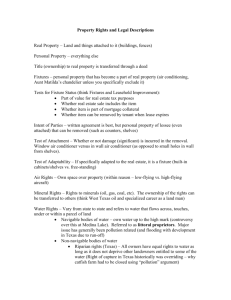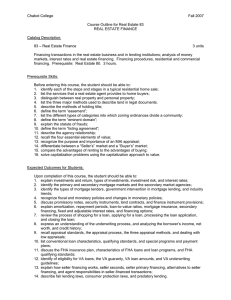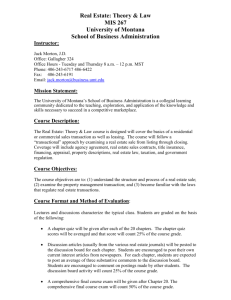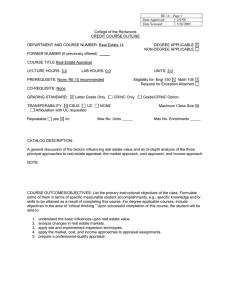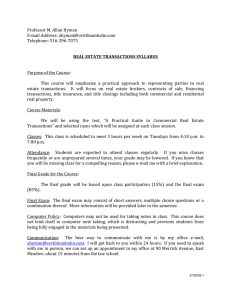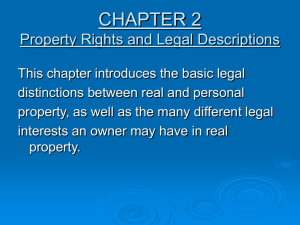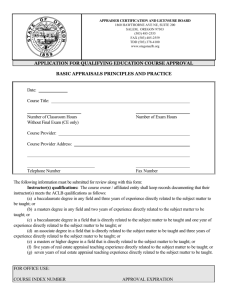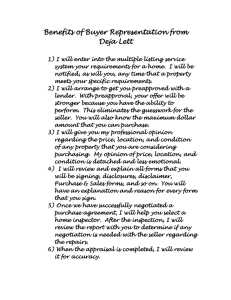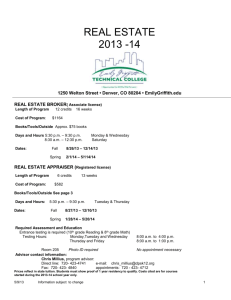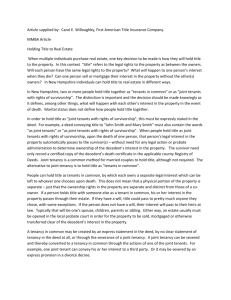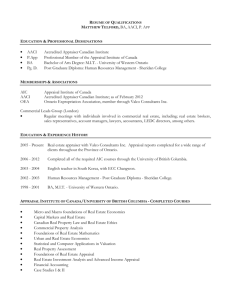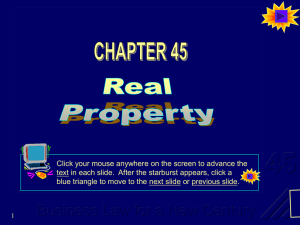Appraisal concepts
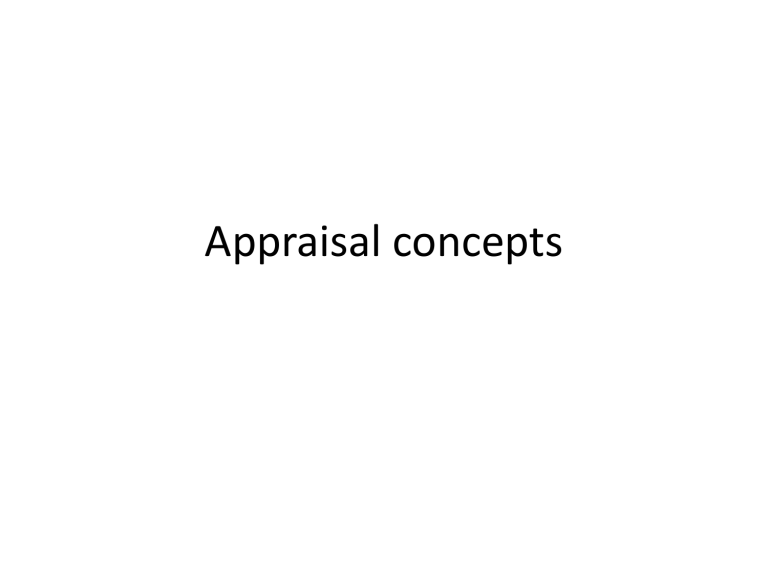
Appraisal concepts
Concept of Land
• Attributes;
– Land is totally unique in many different ways, location, type of asset, so forth
– We just view land differently than anything else; there is a real intrinsic value to it; people fight and die over it
– Land is useful and so its valuable
Concepts of land
• Geographic
– Land represents a specific point on the earth. We can narrow down the description to be very precise
– Geography determines the types of resources that are available and they determine the value of the land; both human and physical resource base will determine the value
Concepts of land
• Legal concepts
– Own the surface and what’s above and below it**
• Bundle of rights
– Sometimes referred to as a bundle of sticks; each right represents a ‘stick’ in the bundle
• Right to occupy and for private use
• Right to convey the rights (lease, sell)
• Right to bequest (give it away)
• Right to do none of these, just sit
Concepts of land
• Limits on use rights for land
– Public
• Taxation
• Eminent Domain
• Police
• Escheat
– Private
• Restrictive covenants in the deed
• Easement
• Reservation
Social and economic
• Land is limited resource to be shared by everyone
• Different points of view; ‘when it comes to land there are a thousand different economies’
• Society has restraints on the use of land
• Land is a fundamental resources
• The economic concepts related to land form the basis of appraisal
Value concepts
• Real estate; usually includes the buildings and other permanent attachments
• Real property; interest, benefits and rights in ownership of real estate.
• Fixtures; attachments; usually determined by law whether or not it is something that can be removed.
Personal property tests
• How is the property attached to the land
• The intention of the one who made the attachment
• The nature of the item and the adaptation to the real estate.
Price/cost/market
• Price; what a particular buyer agreed to pay and a particular seller agreed to accept; different circumstances will change the price.
Remember price and opinion of value
• Cost; this is total expenditure including things like architectural design, financing, and so forth
Market
• Market Value: You must know how the market value is determined and what it represents
“The most probable price, which a property should bring in a competitive and open market under all conditions requisite to fair sale, the buyer and seller each acting prudently and knowledgeably, and assuming the price is not affected by undue stimulus.”
Market
• Assumes a specific date
• Both parties are typically motivated and well informed
• Reasonable time for exposure to the market
• Cash or terms of financing comparable to cash
• Normal consideration; no special or creative financing, no sales concessions
Value fundamentals and types
• Utility; satisfaction
• Scarcity; Current or anticipated supply relative to the demand
• Desire;
• Effective purchasing power (effective demand)
– Do you have the money or resources
• Use, investment, going concern, insurable, assessed and liquidation are all other types of values
Partial interests in land
• Fee simple; ownership without limitations or restrictions. An appraisal is done as if it were fee simple
• Life estates; all of the rights, use and control are limited to the lifetime of the designated party; created by wills or deeds of conveyance
– Life tenant- the one who holds the life estate
– Remainderman- person who gets the property on the death of the life tenant
Partial interests in land
• Tenancy;
– Tenancy by entirety; husband and wife; both own it together and can’t do anything without the other agreeing
– Joint tenants; joint ownership with the right of survivorship; you own it together but when you die your share goes back to the other owners
– Tenancy in common; there is an undivided interest in the property; when you die your share goes to your heirs
Partial interests in land
• Vertical interests; in the ground and the air
• Easements; convey use but not the ownership of the property
• Condominiums, cooperatives, time shares are other forms of ownership

